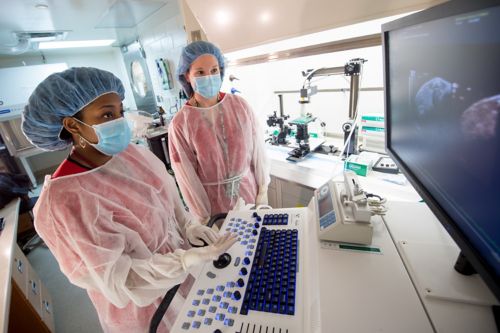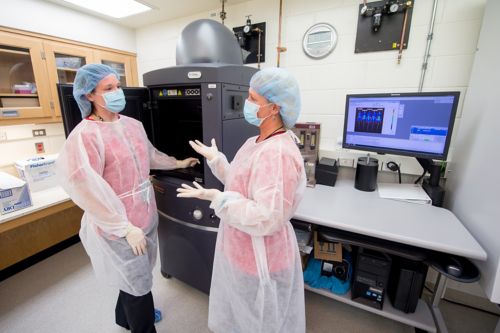St. Jude Family of Websites
Explore our cutting edge research, world-class patient care, career opportunities and more.
St. Jude Children's Research Hospital Home

- Fundraising
St. Jude Family of Websites
Explore our cutting edge research, world-class patient care, career opportunities and more.
St. Jude Children's Research Hospital Home

- Fundraising
Preclinical Therapeutics Program
The Preclinical Therapeutics Program is a complete solution for the design, planning, coordination and execution of preclinical therapeutic studies, providing technical expertise often not available within individual labs.
OVERVIEW
The Preclinical Therapeutics Program (PTP) provides a complete solution for the design, planning, coordination and execution of preclinical therapeutic studies for Cancer Center members. This resource is available to all St. Jude investigators whether they have experience in preclinical studies or not, providing technical expertise often not available within individual labs. Acting within the Center for In Vivo Imaging and Therapeutics (CIVIT), staff coordinate activities for these studies including advanced imaging (MRI, PET/CT), image-guided radiation treatment, ultrasound, and surgical procedures required for specific study designs. Dedicated PTP staff support peer reviewed studies prioritized by Cancer Center Programs, providing hands-on expertise for conducting pharmacokinetic studies, dosing, imaging, and health observations of on-study animals.


IMPACT
PTP aims to provide complete study management and performance within a small core, minimizing the number of individuals involved and reduce the potential for errors in communication. The technical resources of CIVIT, dedicated project management, and tumor resources of the cancer programs provide an exceptional resource to provide preclinical data required for developing clinical trials in pediatric cancer.

PTP has been instrumental in advancing in vivo experiments in my lab. The process is very streamlined: after submitting an application, you obtain expert input during the review process, while also having access to many technical and imaging resources. PTP staff is very enthusiastic, resulting in very productive collaborations.
Paulina Velasquez, Assistant Member
Services and capabilities
- Bioluminescence Imaging: the standard method for monitoring tumor burden and efficacy of therapy.
- Chemotherapy administration for preclinical trials: Up to twice daily dosing, 8 hours apart, 7 days per week
- Observations: Check the health of on-study animals and communicate findings to investigators regarding presence of tumor or tumor-related symptoms, condition of animals after chemotherapy treatment, etc.
- Pharmacokinetic studies: multiple dosing and blood collection timepoints throughout 1-2 days with perfusion and tissue collection at endpoints.
- Tumor implants: injection of cells/tissues IV or SQ/IM, Ultrasound-guided para-adrenal, and intracranial injections.
- Data processing: IVIS ROI compilation and communication to investigators or directly used for enrollment of animals on study.
PTP by the numbers
27
27 PI Partnerships
PTP by the numbers
17
17 peer-reviewed publication contributions
PTP by the numbers
6
6 grants funded using PTP
Director

Arindam Mondal, PhD
Director, Preclinical Therapeutics Program